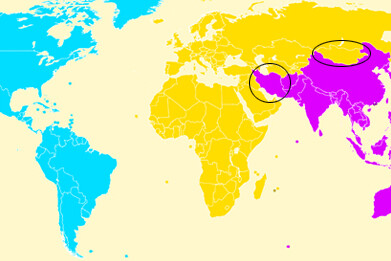The ITU deadline for the switchover from analogue to digital TV came and went this week. The transition applied to 119 countries in Europe, Africa, the Middle East and Central Asia
For the ones that didn’t make the 17 June deadline, many of these are countries which have not started the process at all therefore their missing of the deadline has been barely reported. But there were certainly countries that were arguably trying, and have missed. They include South Africa, Nigeria, and Bosnia & Herzegovina.
Last month we reported on three countries that had announced they would not be able to achieve transition by the stipulated date, and their contingency plans (Related Articles, below)
Zimbabwe falls into another category altogether, with conflicting reports on whether it made the deadline or not.
In South Africa, perhaps the most high-profile of the countries that missed the deadline, the communications ministry reassured viewers that they would still be able to watch free-to-air television
“The Minister of Communications, Faith Muthambi, is confident that South African television viewers will not face broadcasting disruptions after the June 17, 2015, when the International Telecommunications Union ceases to protect analogue users from signal interference,” the ministry wrote in a statement the day before 17 June.
South Africa’s digital migration process has been beset for years by legal challenges around the encryption and production contracts for set top boxes – which are required for viewing digital terrestrial TV.
In line with ITU requirements for countries not meeting the deadline to prevent interference with the digital transmission of neighbouring countries, South Africa has signed agreements with Botswana, Lesotho, Swaziland and Mozambique.
Most of the countries that have missed the deadline will press on with digital rollout at their own pace, working through the economic, regulatory and technical issues.
Nigeria has also missed the deadline, as predicted. A ‘lack of political will’ has been blamed in some quarters. “There is no single penny released by the federal government towards the transition,” said Edward Amana in The Guardian Nigeria. He is the head of the DTV migration team advising the Nigerian president, “the last government didn’t even consider it, so funding stalled all the processes.” he said.
There are no reports as yet that the African countries in question are causing interference issues with their neighbours, unlike the problems reportedly being experienced between Bosnia and Herzegovina, and Serbia.
Related Posts
6th January 2014
Malawi is the only country to meet regional digital deadline
Africa’s SADC set the last day of 2013…
22nd August 2013
State of the nations: digital transition in Africa
An interactive map and round-up for…
